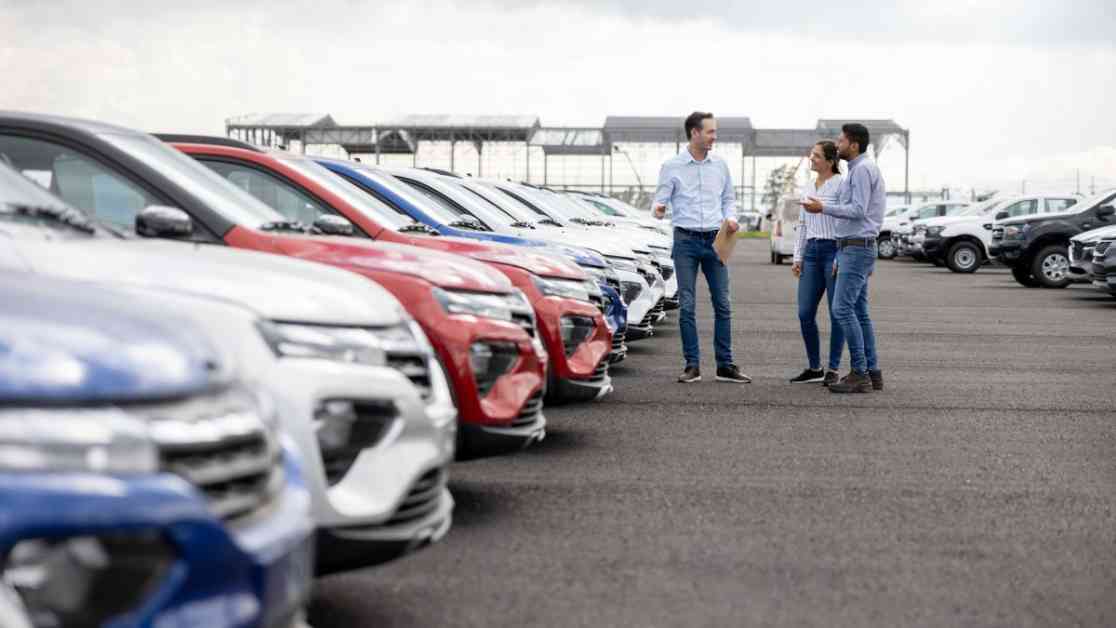Car shopping has been a frustrating experience for many people in recent years due to record high new car prices caused by pandemic-related delays and vehicle shortages. However, there is good news on the horizon as new car prices are finally dropping, boosting sales in the process.
According to J.D. Power’s recent sales forecast, the average new-vehicle retail transaction price has decreased compared to last year. In June 2023, the average price was $46,229, but by June 2024, it had dropped to $44,857, marking a 3% decrease. This drop is expected to lead to a significant increase in new retail sales this month, with buyers projected to spend nearly $44.6 billion on cars. While this figure is still 6.5% lower than last year, it would make June 2024 the fourth highest sales month on record.
One of the key reasons for the price drops is the rising inventory levels. As more cars arrive at dealers’ lots, manufacturers are offering more incentives such as promotional financing interest rates and cash back offers. In fact, incentive spending per vehicle has increased by over 50% from last year, with lease deals accounting for almost 23% of new retail sales.
With increased inventory, buyers now have an easier time finding the vehicle they want without having to wait or search long distances. The number of pre-sold vehicles has decreased, and new cars are expected to spend an average of 45 days on dealer lots, a 17-day increase from June 2023.
While the drop in prices and increased inventory levels are positive developments, there have been challenges along the way. A recent cyberattack on CDK Global’s Dealer Management System has affected thousands of dealers across the country, slowing down the sales process and complicating communications between dealers and buyers. The outage is expected to last through the July 4 holiday weekend, which is a major promotional period for the auto industry.
Overall, the decrease in new car prices and increase in inventory levels are welcome news for dealers, buyers, and automakers. With more incentives and easier access to vehicles, the car shopping experience is becoming less stressful and more rewarding for all parties involved.









